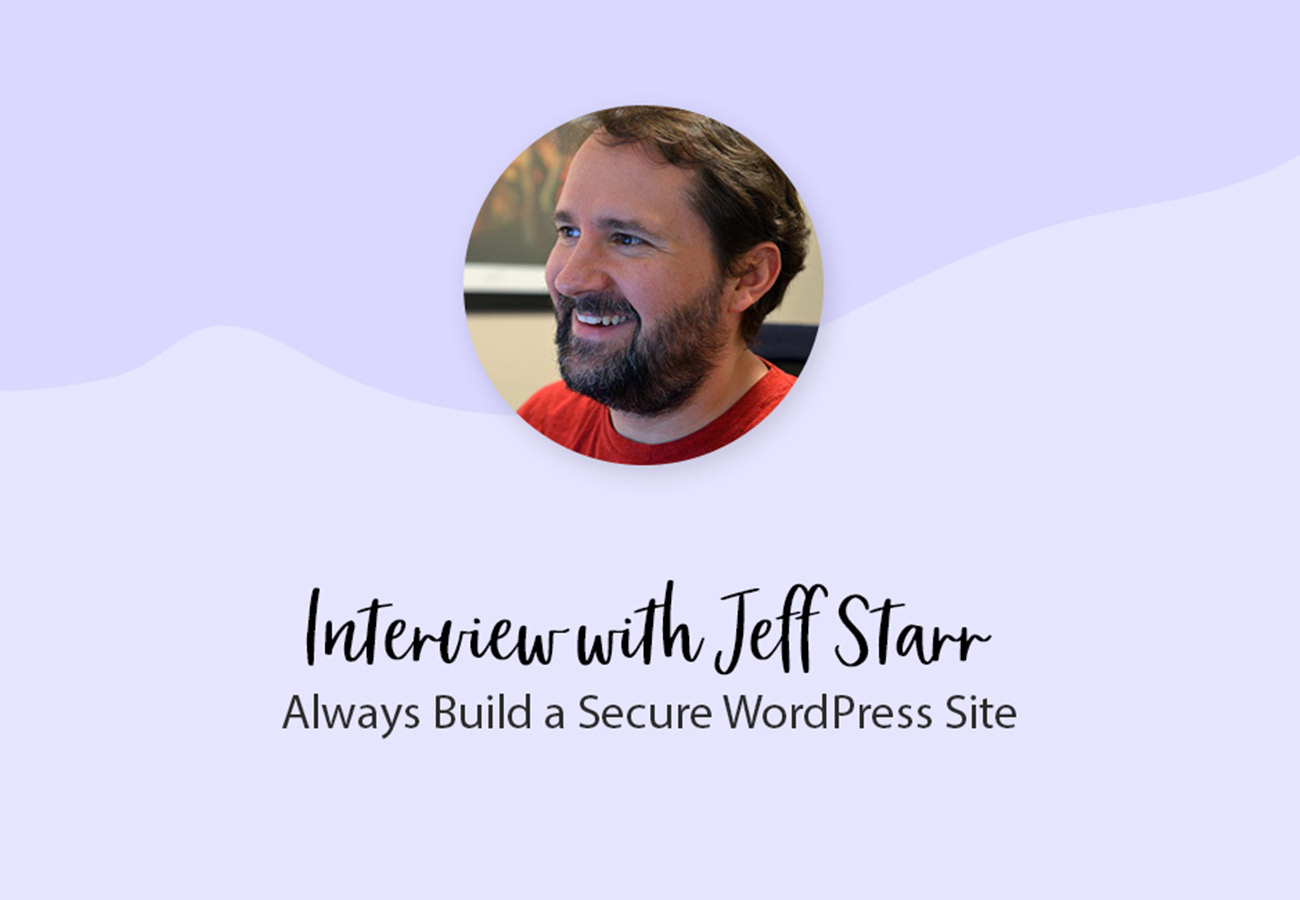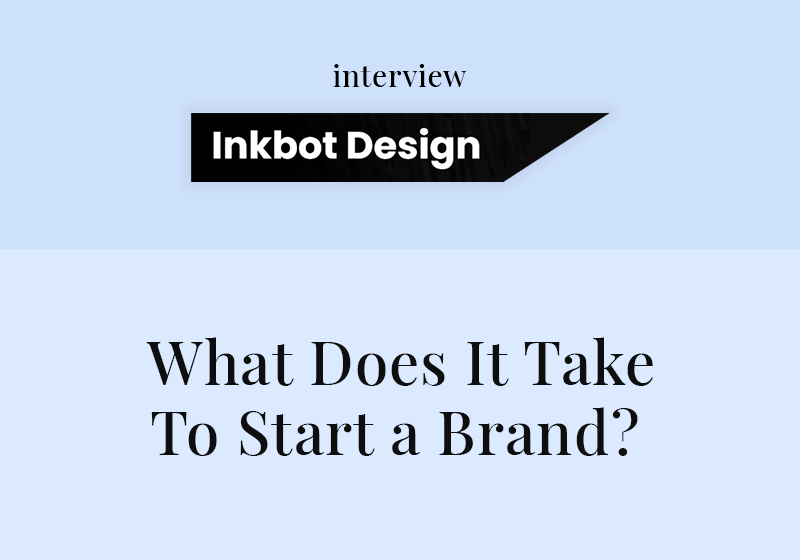
Interview with Jeff Starr: Always Build a Secure WordPress Site
Generally speaking, installing and developing a WordPress site is relatively easy. Still, if you’re new to WordPress, you may be a bit confused in the beginning. After all, there are many different things to consider and take care of. How can you choose a perfect WordPress theme? How can you boost your website speed when using WordPress? What about improving the user experience? Should you have some advanced WordPress knowledge when starting out?
We asked all these questions and more to Jeff Starr, a professional web developer and book author, who shared his tips and know-how on WordPress with us. Without further ado, here are some things to keep in mind while planning to build your WordPress site.
As a web developer, how did you get involved with WordPress?
I started with WordPress around 2004. I had started my own web design business and was busy building all sorts of dynamic sites and projects. Back then I was building everything from scratch using PHP and MySQL, so discovering WordPress as a CMS starting point saved me tons of time and gave me a jump on the competition. The more I got into WordPress development, the more possibilities began to open up. A few years later I teamed up with Chris Coyier and wrote a book on WordPress, called Digging Into WordPress. From that point, things took off pretty rapidly; I’ve been developing with WordPress and helping others to succeed with it ever since.
What prior knowledge (if any) should a person have to attend your courses about WordPress Plugin Development and Security?
It sort of depends on the video course. At lynda.com, you can learn how to build secure WordPress sites, develop WordPress plugins, and set up a WordPress site on shared hosting. The security and plugin development courses recommend that you have some familiarity with WordPress, but it’s not required to get started. The shared hosting course is for literally anyone and is an absolute beginner level, so zero experience or knowledge is required to get started quickly with your own WordPress site on shared hosting.
If a beginner were to start learning about WordPress from your books, what is the main benefit they could expect to gain from them?
For beginners, a great place to start is The Tao of WordPress, which begins at the ground floor and walks through the entire process of setting up and customizing your WordPress-powered site. I actually wrote this book to teach my two children how to use WordPress. Everything is kept super simple with lots of helpful graphics and visuals. So even if you are brand new to the Internet, The Tao of WordPress will help you set up your WordPress site, and then customize it, secure it, optimize it, and much more.
For more experienced users who want to dive deep into WordPress theme development, my book WordPress Themes In Depth teaches everything you need to get started in building and even selling your own WordPress themes.
What do you see as the main advantage of Gutenberg for WordPress developers?
Gutenberg is great for those who develop with JavaScript because it’s mostly written in JavaScript. So if you are a JavaScript developer, Gutenberg opens the door in WordPress to build more elaborate and sophisticated UI features, blocks, and so forth. On the other hand, WordPress developers specializing in PHP-based development initially are at a disadvantage with Gutenberg. To get on board, aspiring Gutenberg developers will need to learn “deeply” about JavaScript and JS-based tooling and techniques. It’s a bit of a learning curve, to be honest.
And I speak from experience. When Gutenberg plans were first announced a couple of years ago, I could write basic JavaScript but primarily developed with PHP/HTML/CSS and a sprinkle of jQuery. At the time, I was not equipped with the extensive JavaScript skills required for Gutenberg development. So since then, I’ve been ramping up my JavaScript experience to the point where I feel comfortable jumping in and developing for Gutenberg as needed. In fact, several of my free WordPress plugins now feature Gutenberg blocks and related functionality.
Do you need advanced knowledge of WordPress or any other blogging platform to independently manage a blog if you’re just starting out?
Not at all. The trick is understanding what it is that WordPress (or any CMS) can, and can’t do. Once you understand its capabilities, you’re equipped to tap into the power of WordPress and let it do all the work for you. In many cases, you can set up the site you want just using existing WordPress functionality, without running a million plugins or hacks to do the job. This is what my book The Tao of WordPress teaches – how to become a WordPress master by simply letting WordPress do what it was built to do. Confusion, in my experience, is the primary reason why people fail with WordPress. So, find the right guide and you’ll be all set to succeed with WordPress.
What 5 things should every website owner consider when choosing a WordPress theme?
Here are the biggies that come to mind:
- Trust. Is the theme from a reputable, trustable source?
- History. How long has the theme been around, proven track record, etc.?
- Features. Can the theme do what you want it to do?
- Support. Does the theme provider offer great free support?
- Cost. Is the price of the theme reasonable and affordable (e.g., one-time fee vs. subscription-based pricing)?
Of course, there is much more to it than that, depending on the specifics of the site, goals, and so forth. But that’s a pretty solid list that I usually keep in mind when shopping for new themes (and plugins).
Also, a pro tip for testing theme support: send the theme’s support team a quick email asking a couple of questions, like is this theme compatible with so and so, or ask about some specific feature. Then wait to see how long it takes them to reply, and the manner of the reply. That will give you an idea of what to expect for any future support requests.
What do you think are the most important functionalities of WordPress websites?
Security is first. Without solid security, the site is less than worthless. From there, it is all about the user experience. Forward-facing features should go toward ensuring a positive experience for the user. Other features should ensure the required functionality for the administrator(s), developers, and such. Beyond that, WordPress sites should maintain excellent performance (e.g., quick loading pages) and good SEO. So security, performance, and SEO, along with super-smooth user experience, are the top key factors for any WordPress-powered site.
Can you recommend any methods for non-developers to improve their WordPress site speed?
The best way to improve speed is to get a better web host. That is the foundation for any site. WordPress itself is pretty darn fast, but it’s gonna be slow if hosted on a slow server. So instead of trying to build a fast site on a slow server, find the dough and get a faster server. Then you don’t have to try so hard, installing all sorts of “performance” plugins that actually may only slow your site down further. With web hosting, like many other things, you get what you pay for. So if you want a super-fast site, it will cost more than a cheap, slow one. And for those who can’t afford to step up their hosting game, the name of the game is optimizing everything: file sizes, page sizes, number of requests, and everything else. Some plugins can help with this, as well as optimizations that can be made via the theme template.
Do you have any tips on how to ensure your audience has a seamless website experience?
Test, test, and test some more. Test all of the things – test on different platforms, test on different devices, Test a variety of users. The more testing the better, because it helps to iron out the bugs and refine the user experience. There are all sorts of awesome tools and services that can help properly test, diagnose, debug, and optimize. Find them and use them. Properly tested websites and projects most always will deliver a more seamless and smooth experience than those that fail to do so. Cutting corners is more expensive than doing it right.
What do you do for fun outside of work?
I enjoy hanging out with family and friends, meeting new people. I like movies, music, and the occasional gaming adventure. I also like to draw and paint, and record and edit audio and video. I also dabble in photography, graphic design, and DIY book publishing. Fortunately, I love my work, so I have fun even just sitting here working hard all day long.
We hope this article was helpful. If you liked it, feel free to check out some of these articles as well!





